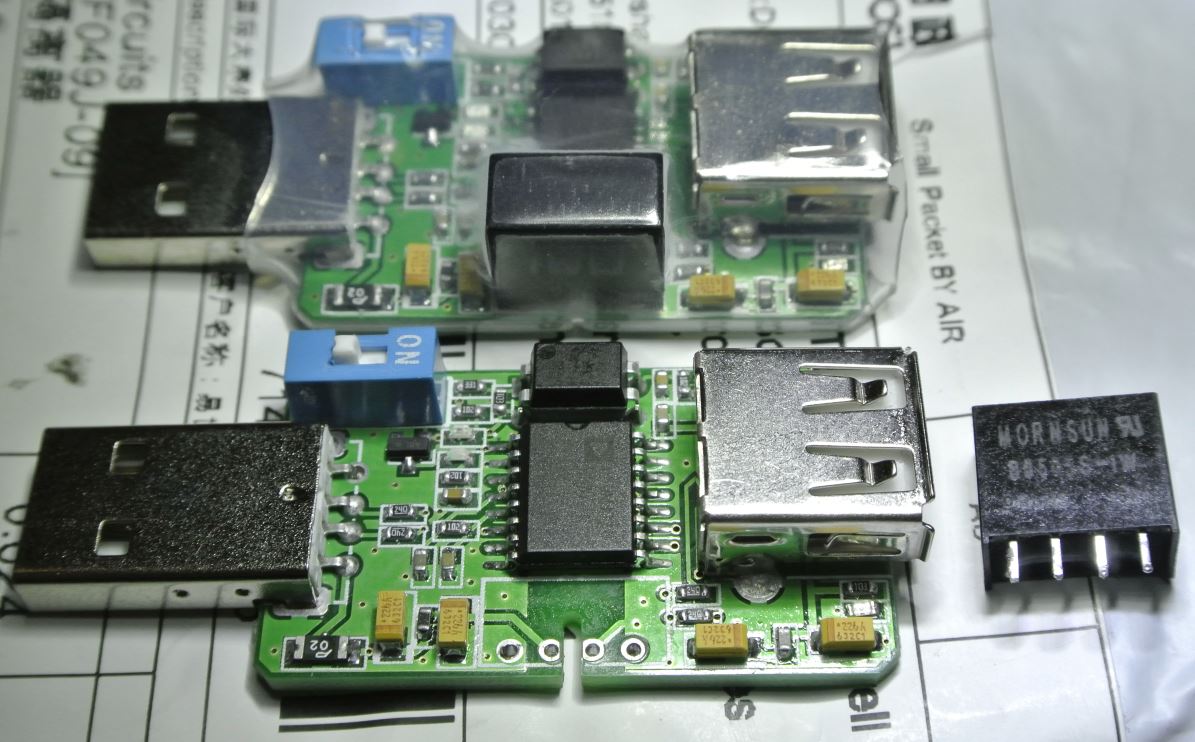Just got my A$15 usb to usb isolators, and they are brilliant. The motivation is that I have always been uncomfortable about testing stuff on the bench while I have equipment directly attached to the device under test plugging directly into my desktop's PC's electronics via a USB cable.
The problem is in both directions - noise from the PC going to the device been tested, and the risk that if the test generates a massive spike, my desktop PC may be damaged.
Anyway, I got two of these from ebay. A search for USB to USB isolator will find them.

I pulled the isolated DC 5V-5V isolator off. Shouldn't be there anyway. It is only 200mA out, it says it is not properly regulated in the data sheet and it is rated only up to 1000V. I will file the board and pads where the isolator was located away to make a proper gap. Removing the DC-DC isolator means you do need a powered USB hub on the unpowered side of the isolator.
Without the DC-DC isolator, the only things spanning the insulation gap are an Everlight EV817 opticoupler rated at 5000V RMS and an Analog Devices UDuM3160 USM isolator chip rated at 2500V RMS for 1 minute (UL). The unpowered capacitance across the gap was 4pF. It will probably rise to about 12pF to 14pF when powered, but it was a bit hard to measure. Still very good.
Anyway, it is only USB 2.0
High Full Speed (12mBits/sec) so I wasn't sure how it would work.
Tried it with a Hantek DSO-2150 USB scope and a Logicport USB Logic analyser and both worked flawlessly. Very happy. Even the scope had a very good update rate on the screen - hardly noticed a difference. The USB scope noise seemed to be about half what is was when connected to the PC directly. I am sure it will work perfectly with any USB to serial device like Arduino boards.
I will try a HV test, but I have to rig something up for that - do not have any HV testing gear of my own other then a Fluke HV probe.
Just a warning - if you are going to use this to connect to a HV device under test, do not trust your safety on this cheap device. I think it is pretty safe with the DC isolator removed and with the gap filed to a safe size, but assume everything on both sides is live. I am using this to protect my equipment, and lower noise. I will protect myself by not taking risks with anything potentially live. Almost all my work is at low voltages anyway.
Richard